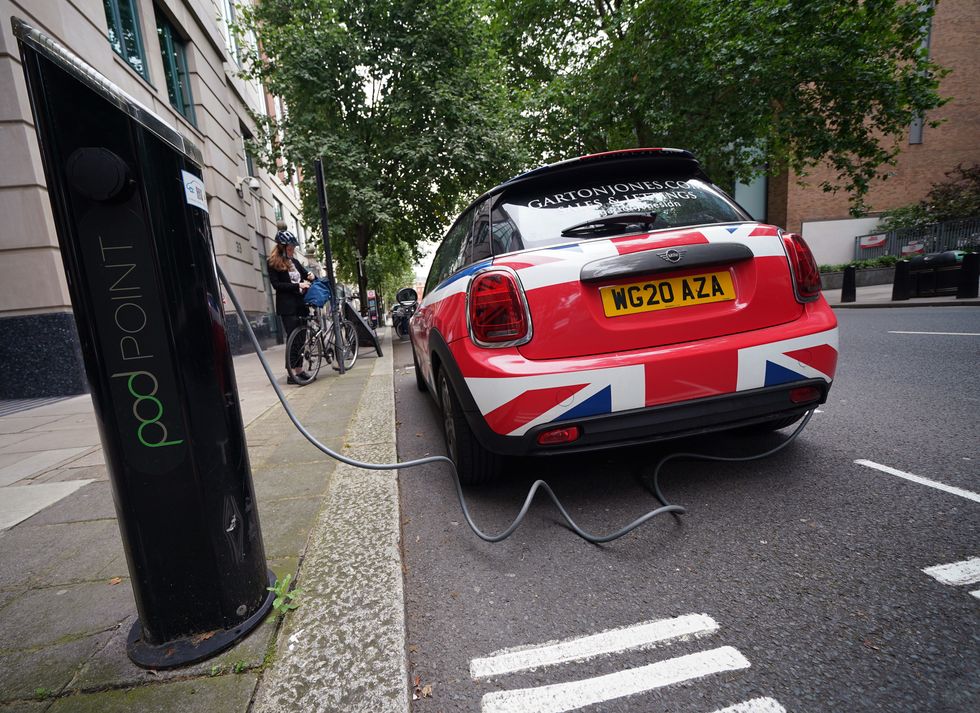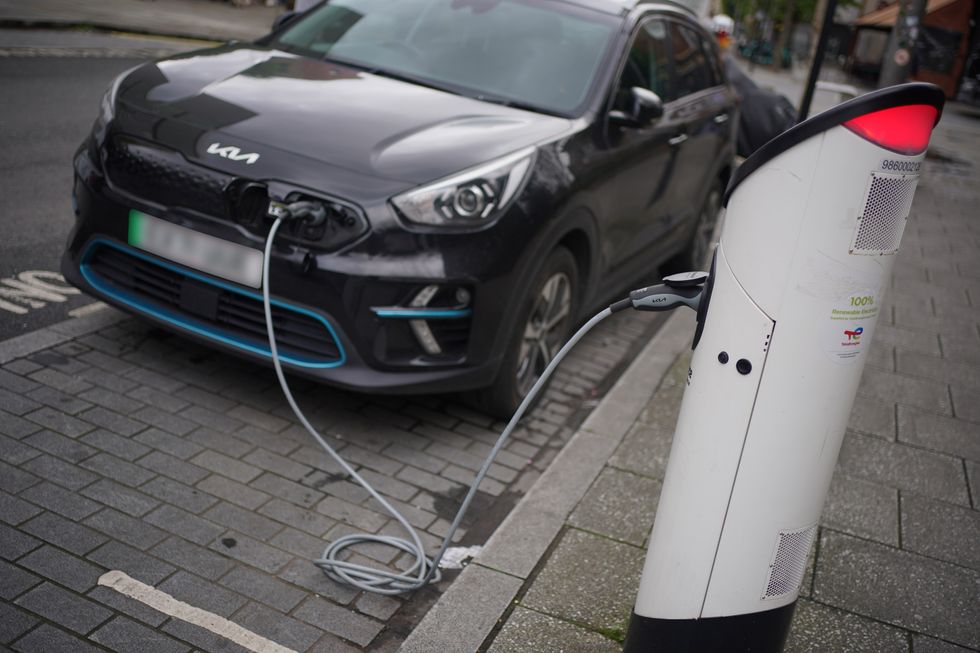Labour still plans to ban the sale of new petrol and diesel cars and vans by the end of the decade with an announcement expected “in due course”, amid fears this could cause chaos for the electric vehicle plans.
Throughout Labour’s election manifesto campaign, Keir Starmer’s party maintained that it would reinstate the original 2030 deadline to ban the sale of new internal combustion engine vehicles after it was delayed last year.
Former Prime Minister Rishi Sunak originally announced plans to delay the 2030 deadline to ban the sale of new petrol and diesel cars and vans and instead move it to 2035, alongside other net zero pledges.
In his speech, he announced that it would give drivers the chance to switch to electric vehicles on their terms, rather than the Government forcing them to do so by a certain timeframe.
Do you have a story you’d like to share? Get in touch by emailing[email protected]

The Government told GB News an announcement would be made ‘in due course’
PA
The MP for Richmond and Northallerton added that the new 2035 deadline would bring the UK in line with other world leaders in decarbonisation like the European Union, US states such as California, as well as being ahead of New Zealand.
With Labour’s progress with several of its key manifesto pledges coming to fruition within weeks of them coming into power, the automotive industry is waiting with bated breath to hear when Labour will make sweeping changes to the motoring plans.
A Government spokesperson told GB News that an announcement outlining what would happen in the near future in relation to the petrol and diesel car ban.
They said: “We’re committed to delivering greener transport by supporting the transition to electric vehicles.
“We will provide certainty to manufacturers by restoring the 2030 phase-out date for new petrol and diesel cars, and are committed to accelerating the rollout of electric vehicle charging infrastructure. We will set out further details due course.”
Electric vehicles have been given allowances which allow them to avoid the payment of Vehicle Excise Duty (VED) until April 2025 when they will need to pay the lowest rate of car tax, following former Chancellor Jeremy Hunt’s aim to make the system of taxation fairer for all drivers.
This is in addition to Plug-In Vehicle grants for vans, trucks, taxis and wheelchair accessible vehicles, as well as a boost in funding for charging infrastructure to support the rollout of chargepoints in local authorities across England.
Many industry experts are anticipating that major changes will be needed to adjust the Zero Emission Vehicle Mandate to adjust deadlines to the end of the decade, in line with the planned changes to the 2035 car ban date.
Under current guidelines, manufacturers need to make sure they have a minimum proportion of their total sales come from zero emission vehicles, starting with 22 per cent by the end of the year.
These targets will adjust every year, moving to 80 per cent of new cars and 70 per cent of new vans sold in Great Britain needing to be zero emission by 2030, followed by 100 per cent in 2035.
While this will create a major boost for the uptake of electric vehicles, there could be some issues with manufacturers being forced to produce a much higher volume of EVs earlier than previously anticipated.
Estimates have already shown that some manufacturers may have to pay hundreds of millions of pounds in fines if they do not increase their production of electric vehicles in the near future.
LATEST DEVELOPMENTS:

The ZEV mandate outlines targets until 2035
PA
It could provide a serious headache for Labour and Keir Starmer as to whether manufacturing targets change and if they will have an impact on whether consumers can purchase those vehicles.
One potential solution could be to allow manufacturers to follow the guidelines in the ZEV mandate and export all vehicles to nations where the sale of new ICE cars and vans is prohibited.
The latest data from the Society of Motor Manufacturers and Traders (SMMT) found that 309,917 vehicles manufactured in the first six months of 2024 were exported, with more than 55 per cent of these being sent to the EU.